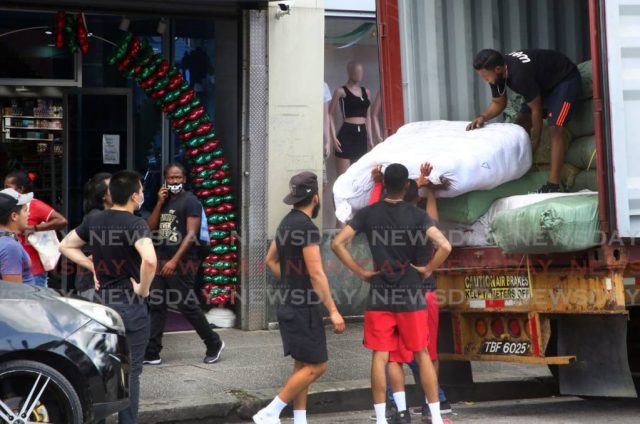
THE INFLUX of Venezuelans has evoked concern by many citizens who claim that TT has economic and social problems of its own. Many critics point to gang affinity and prostitution amongst a minority of immigrants. Nevertheless, most migrants appear to be trying their best to live decent lives, to earn incomes for their families.
By Chandradath Madho / Newsday
While the number of unregistered Venezuelans is probably larger than the registered migrants (16,500), do we truly understand the magnitude of the Venezuelan crisis? We must appreciate the reasons for the migration to understand that the influx will continue.
Firstly, the migration problem is so large that the UN Refugee Agency (UNHCR) predicted that in 2020, the migration will reach five million. While it is difficult to measure this émigré population in the context of a covid19 pandemic, the number is as large as the displaced migrants in the Syrian conflict.
Even if the Venezuelan to resident Trinidadian population is one-three per cent, we must internalise that Venezuelans are not “choosing” TT as a targeted haven for a life of freeness. Instead, it is part of a much wider emigration process which highlights the desperation of a people intent on escaping hardships.
According to conservative estimates by the UN International Organisation on Migration, the Venezuelans have moved to Colombia (1.8 million), Peru (456,000) and Chile (366,000). These nations share borders with Venezuela, common colonial history, Catholic ties, and the same language. But 253,000 have also immigrated to Portuguese-speaking Brazil. Furthermore, the migration is not just regional but international with asylum seekers reaching the US (400,000) and Spain (300,000).
Secondly, the political crisis in Venezuela is entrenched in a deadlock between the government and opposition, with little sign of a resolution. President Nicolás Maduro does not control the National Assembly, because most seats are held by opposition parties. He strategically created a parallel assembly termed the Constituent Assembly, comprising government supporters.
This perceived abuse of power provoked Juan Guaido, an opposition leader, to proclaim himself interim president of Venezuela in January 2019. Guaido purports that the constitution allows the leader of the National Assembly to act as interim president during a national crisis. However, Guaido’s minimal charisma, lack of grassroots appeal and backing by a US-led coalition of nations appears to be undemocratic, and pre-empted by western interference. This political impasse has prolonged the power of Maduro’s Socialist PSUV.
Since 2014, the UNHCR has reported political repression akin to war crimes exemplified in arbitrary killings and systematic use of torture being a common aspect of Maduro’s regime. One can surmise that Venezuelan emigres are therefore fleeing political persecution and poor governance. After all, 50 nations support Guaido while the UN Security Council cannot intervene because Russia and China defend Guaido’s legitimacy, with some Caricom states like TT insisting on non-interference and international neutrality.
Thirdly, the socio-economic conditions in Venezuela are undignified and repel Venezuelans away from their homeland. Price-control policies backfired against the state as private companies closed. Basic foods like flour and oil – and toiletries – are no longer being locally produced because companies fear that price controls will reduce profit. The sharp fall in oil prices has rendered socialist handouts to the poor fiscally unsustainable.
Sadly, Maduro’s predecessor, Hugo Chavez pioneered poverty reduction programmes from oil revenues without adequate investments in public goods and infrastructure. Social services have also contracted and, prior to covid19, tropical diseases returned to Venezuela like measles, diphtheria and malaria. Child malnutrition rates are very high, largely caused by hyper-inflation at a time when currency devaluations have meant that Venezuelans prefer to trade in US cash than their own bolivar.
Furthermore, the Trump administration’s legacy of trade sanctions is short of an embargo but restricts Americans from initiating trade and commerce with Venezuela. So, Venezuela has been in a similar quandary as North Korea, Iran and Cuba. The latter two nations continue to trade with Maduro’s regime to the dismay of the US. Tragically, the people of Venezuela are clearly suffering from lack of resources while their leaders position their ideologies in the global diplomatic arena.
In the past 20 years, millions of Venezuelans’ standard and quality of life have been uprooted. The State cannot provide basic health, education and regulation of food and medical distribution. Chavez’s and Maduro’s economic policies exacerbated income inequality, with minimal funding of the police agencies, inevitably fuelling an upsurge in crime, especially gang warfare, kidnapping and homicide.
Venezuelans live in constant fear of consumption poverty and human insecurity, against a backdrop of a constitutional crisis. Their citizenship-rights are usurped by politicians, and they have rationally fled their homes seeking humanitarian assistance. Our conscience therefore compels us to host our Venezuelan migrants in a fair and equitable manner.

